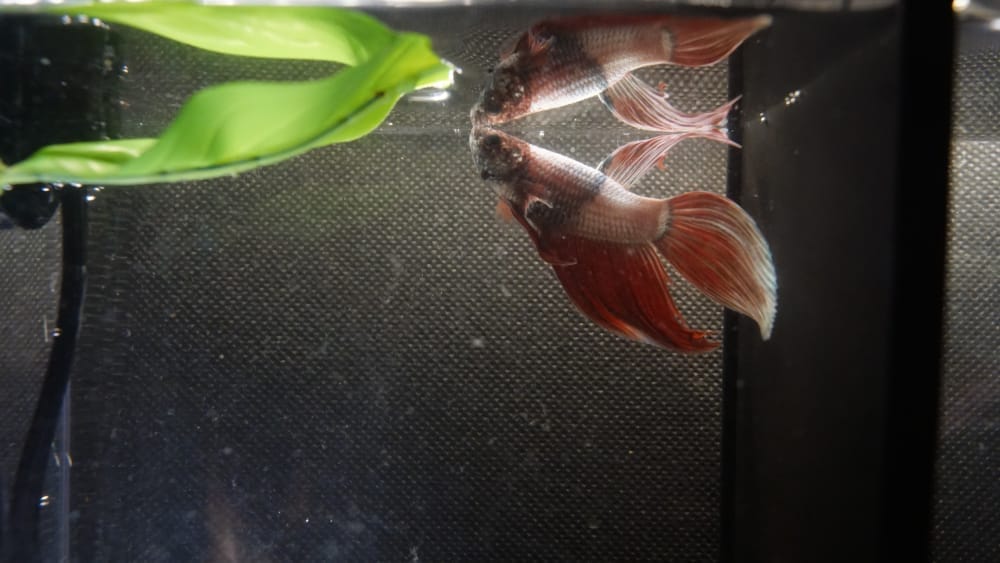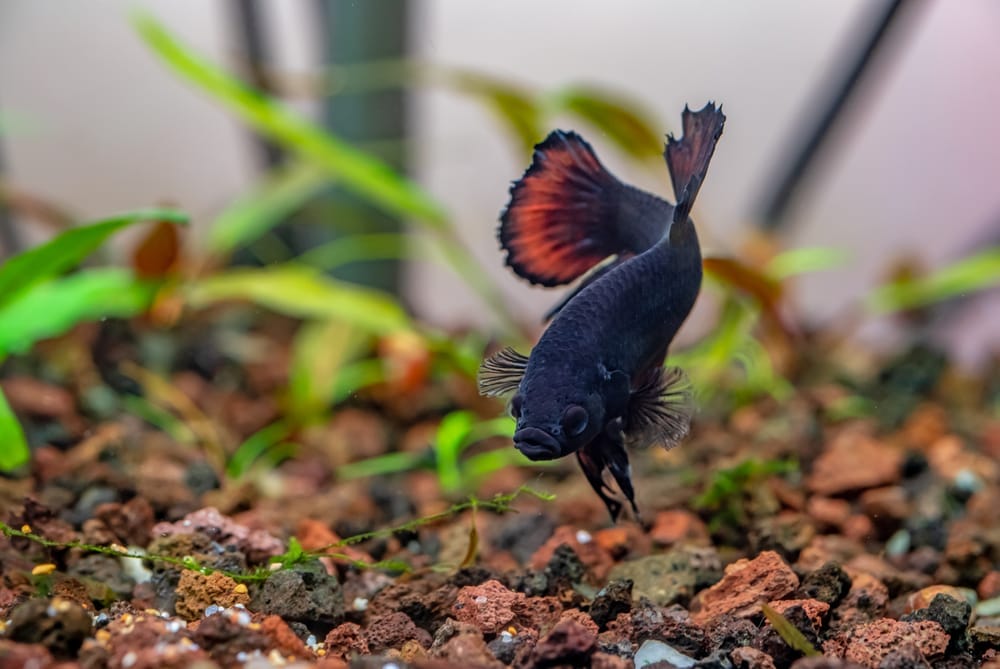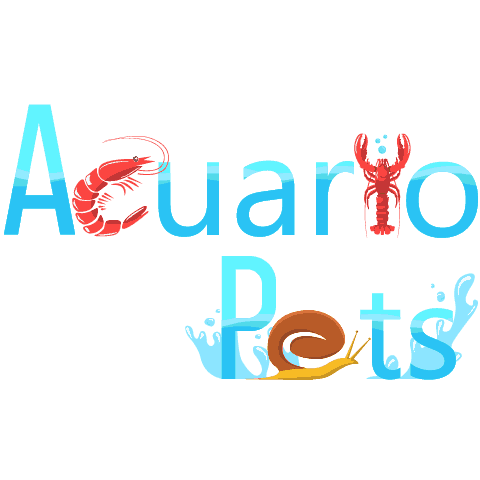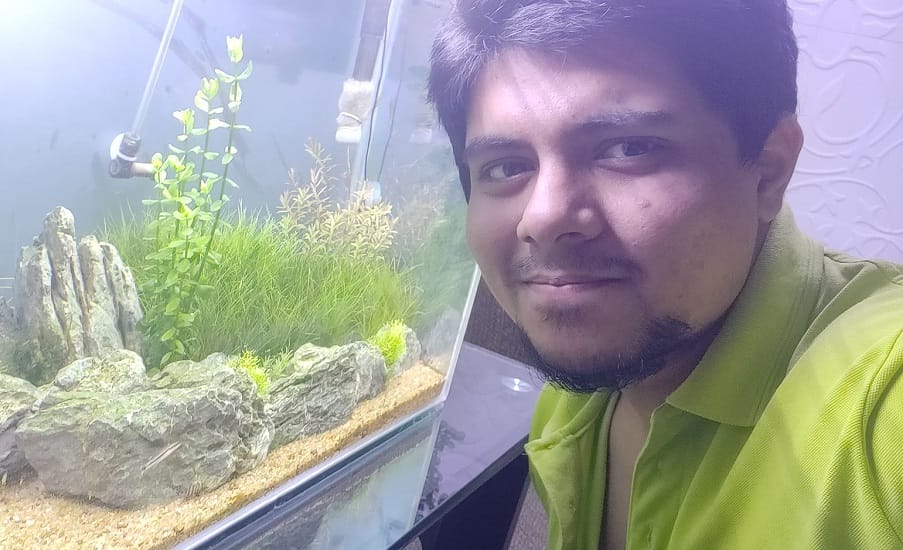This post was created with help from AI tools and carefully reviewed by a human (Muntaseer Rahman) . For more on how we use AI on this site, check out our Editorial Policy.
Check Out These FREE Tools We Made JUST For You!
Can You Clean A Betta Fish Tank With Soap?

Picture this: You’re staring at your betta fish tank, and it looks like a crime scene from a nature documentary gone wrong. Algae everywhere, that funky smell, and your poor betta swimming around like he’s trapped in a green nightmare.
Your brain immediately jumps to the obvious solution – soap! I mean, soap cleans everything else, right?
Wrong.
The Short Answer: Absolutely Not
Using soap to clean your betta fish tank is like using a flamethrower to light a birthday candle. Sure, it might work, but you’re going to have way bigger problems afterward.
Soap residue and detergent can seriously harm or even kill your betta fish. Even small amounts of soap or detergent will affect your betta fish.

Why Soap is Your Betta’s Worst Enemy
Think of soap like kryptonite for fish, except way more common and sitting right there in your kitchen.
Soap interferes with gill functions, leaving your fish to drown. This can happen very fast but is easily preventable.
It’s basically like someone putting plastic wrap over your nose while you’re trying to breathe. Your betta’s gills get all messed up, and suddenly they can’t extract oxygen from the water properly.
But wait, there’s more! Soap also breaks down the water’s surface tension, which sounds fancy but basically means oxygen escapes from the water like air from a popped balloon.
Real Stories from the Trenches
The internet is full of horror stories from people who learned this lesson the hard way.
One forum user shared: “I inherited a work fish from a laid-off coworker, and for three years have washed out his bowl with soap… I don’t use a lot, and I always thoroughly rinse everything.”
Plot twist: The fish somehow survived three years of soap cleaning!
But experts were shocked, with one responding: “your fish survived through phosphates, alkaline salts, oxygen-based bleach, surfactants, sodium sillicate and most dish soaps are highly basic……all i can say is wow……”
That’s basically like surviving a chemical warfare experiment. Don’t count on your betta being that lucky.
What Happens When Soap Meets Fish?
The weirdest part? The chances of saving a fish from soap poisoning are very small. The soap gets into the gills and doesn’t come out easily.
The fish breathes it in through the gills, poisoning the inside of the body.
It’s not just about cleaning off the outside – once soap gets in those delicate gills, it’s game over. Your betta becomes lethargic, loses buoyancy, and basically starts acting like they’re swimming through molasses.

Emergency Protocol: “I Already Used Soap!”
Don’t panic (yet). If you accidentally used soap, here’s your emergency game plan:
Step 1: Remove Your Fish Immediately
Get your betta out of there faster than you’d leave a bad first date. Use a cup or net and put them in clean, conditioned water.
Step 2: The Great Rinse Marathon
Detergent dissolves just fine in water, so that’s the best thing to get rid of it. Each time you rinse, 99% of it will be gone. Do that enough times, and you are safe again.
We’re talking about rinsing that tank like your life depends on it. Fill it, dump it, repeat until your arms hurt.
Step 3: Test for Bubbles
Here’s a neat trick: keep refilling and emptying the tank until such time as any bubbles that form when the water is disturbed break up right away on the surface rather than floating around for a prolonged period of time.
If bubbles stick around like unwanted party guests, there’s still soap in there.
The Right Way to Clean Your Betta Tank
Hot Water is Your Best Friend
Do not use soap on the decorations or anything else in your tank. Even if you rinse it off well, soap residue can still remain and harm your fish.
Hot water alone does a surprisingly good job. It kills bacteria and removes most gunk without turning your tank into a toxic waste site.
White Vinegar: The Safe Alternative
When hot water isn’t cutting it, white vinegar is your secret weapon. Diluted white vinegar is a good alternative for cleaning most aquarium accessories and decorations. Simply mix 1:1 of water and white vinegar, rinse, and/or soak.
Just make sure to rinse everything until you can’t smell vinegar anymore. Your betta doesn’t want his tank smelling like a pickle factory.

The Cleaning Routine That Actually Works
Here’s how the pros do it:
Weekly Maintenance
- Change 25% of the water
- Vacuum the gravel with a siphon
- Scrub algae with an algae scraper
- Clean decorations with hot water only
Monthly Deep Clean
- Remove your betta to a temporary container
- Empty most of the tank water
- Scrub everything with hot water and vinegar if needed
- Rinse until there’s no vinegar smell
- Refill with conditioned water at the right temperature
What About “Aquarium-Safe” Soaps?
Some people ask about special aquarium soaps. Here’s the thing – you cant use average cleaners like soap and detergents on a fish tank, white vinegar and salt are perfect when cleaning fish tanks.
Even “safe” soaps are unnecessary when hot water and vinegar do the job without any risk.
The Bottom Line
Cleaning your betta tank with soap is like performing surgery with a chainsaw – technically possible, but you’re going to cause way more damage than you fix.
Your betta didn’t sign up to live in a chemistry experiment. Stick to hot water, vinegar when needed, and regular maintenance. Your fish will thank you by not floating belly-up, which is always a win in my book.
Remember: Never clean a tank or its components with soap! It’s very tough to remove all the soap and it can poison your betta once the tank is refilled.
Keep it simple, keep it safe, and your betta will keep being the magnificent little water dragon they were born to be.
About Author
Hello, I’m Muntaseer Rahman, the owner of AcuarioPets.com. I’m passionate about aquarium pets like shrimps, snails, crabs, and crayfish. I’ve created this website to share my expertise and help you provide better care for these amazing pets.
Disclaimer
This site is owned and operated by Muntaseer Rahman. AcuarioPets.com is a participant in the Amazon Services LLC Associates Program, an affiliate advertising program designed to provide a means for sites to earn advertising fees by advertising and linking to Amazon.com. This site also participates in other affiliate programs and is compensated for referring traffic and business to these companies.

